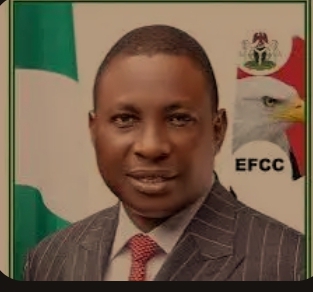By Tambaya Julius, Abuja
Ola Olukoyede, the Chairman of the Economic and Financial Crimes Commission (EFCC), has voiced his deep concerns over the vast scale of corruption plaguing Nigeria.
During a meeting with the management team of the Revenue Mobilisation Allocation and Fiscal Commission, led by its Chairman, Mohammed Shehu, Olukoyede expressed his astonishment at the extent of financial misappropriation that he encounters in case files.
According to a statement released by the EFCC’s Head of Media and Publicity, Dele Oyewale, Olukoyede remarked, “When I look at some case files and see the humongous amount of money stolen, I wonder how we are still surviving. If you see some case files, you will weep.”
He highlighted the disturbing trend of transferring unspent budget allocations to private accounts in commercial banks just before the end of a budget cycle.
This practice, he noted, raises serious questions about the moral compass driving such actions.
Olukoyede identified public corruption as the primary source of the nation’s woes. He emphasised that eliminating corruption within public offices could significantly enhance Nigeria’s development and position it ahead of many other nations.
He condemned the audacity of public officials who refuse to account for their tenure, stressing that transparency and accountability are crucial for both public and private sectors to thrive.
Despite the daunting challenges, Olukoyede remains hopeful. He believes that the preventative measures being implemented under his leadership will enable the EFCC to stay ahead of corrupt practices.
The EFCC has introduced a Department of Fraud Risk Assessment and Control to bolster these efforts. Olukoyede stated, “The preventive framework of tackling corruption offers more prospects of results and impact.”
Olukoyede pointed out that the current revenue generation system in Nigeria is fraught with leakages, allowing funds to be misappropriated.
He advocated for a comprehensive policy review to address these issues. “If we can block some of these leakages and have 50 percent of capital project execution in Nigeria, the country would be fine,” he asserted.
During the meeting, Mohammed Shehu praised the ongoing collaboration between RMAFC and EFCC.
He stressed the importance of this partnership in recovering unremitted or lost government revenues.
Shehu called for enhanced collaboration not only in enforcement but also in intelligence gathering and data sharing related to government revenue.
He also sought EFCC’s assistance in building the capacity of RMAFC staff for more effective revenue monitoring.











